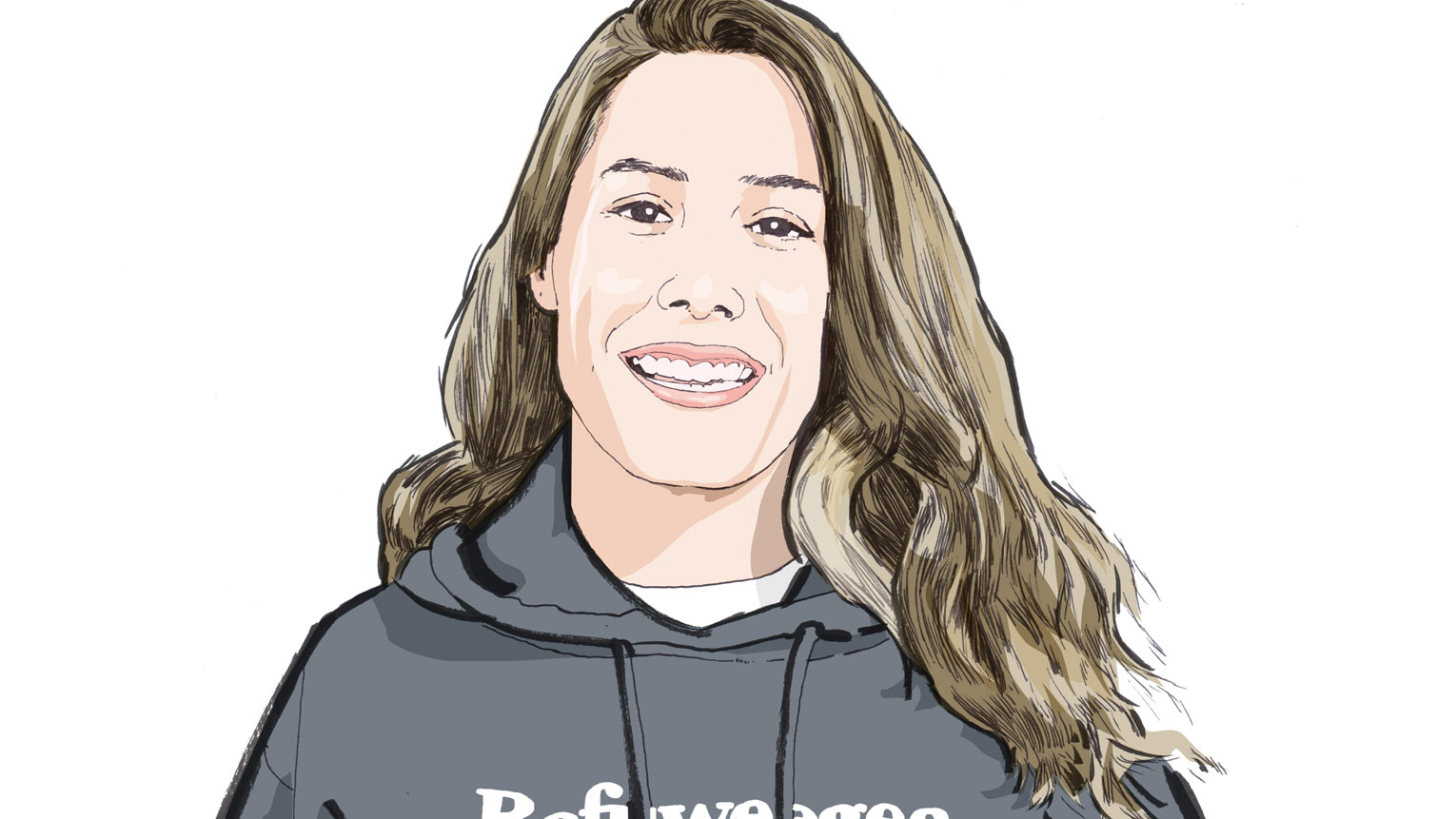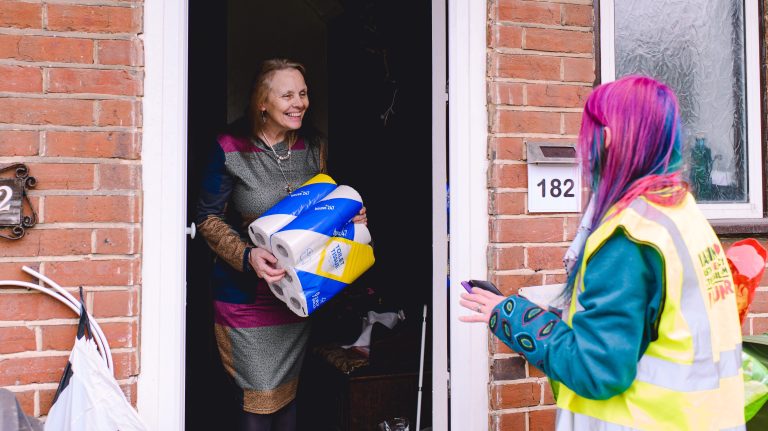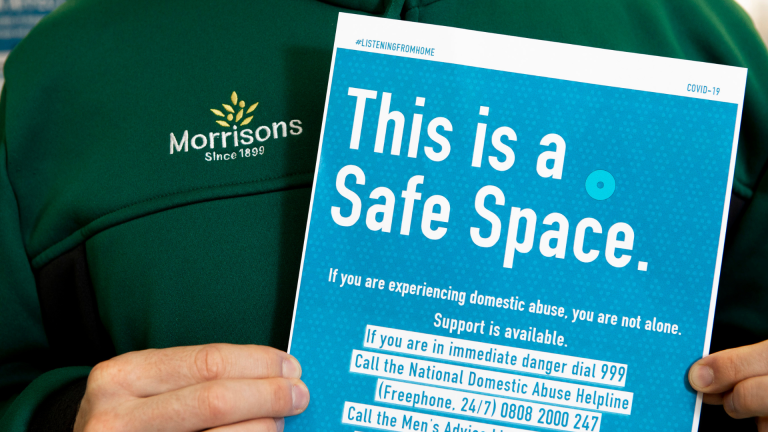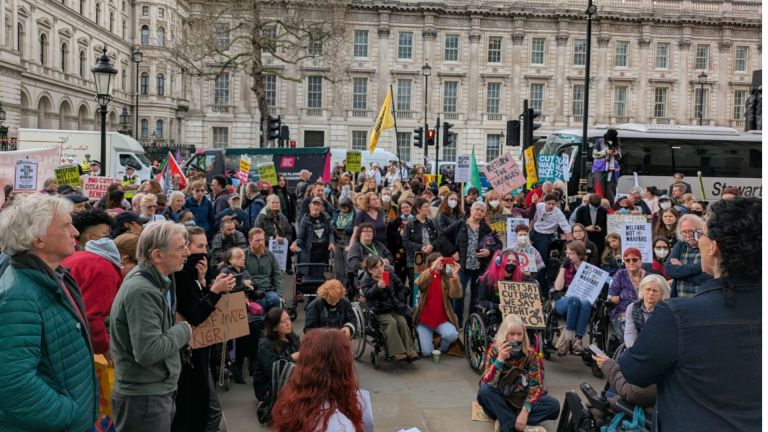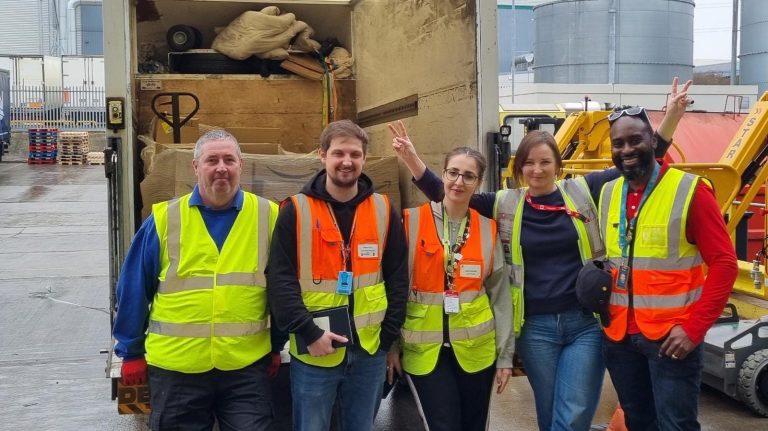“Lots of people ask if we’re planning on setting up elsewhere or replicating Refuweegee. But we work because we know Glasgow. It doesn’t work as a franchise, you can’t go into the community and be the community. You have to be the existing community to extend that welcome.”
Before setting up the charity out of the loft space in her home, the mother-of-two worked as a project manager for the Glasgow Chamber of Commerce. She had always enjoyed initiatives that supported people, she says, and the job gave her an overview of the city’s capacity to force and instigate change.
The turning point came when Hales caught news coverage broadcasting a clip of the Hungarian border closure. She was horrified.
“The wars and persecution taking place are horrendous enough. But the reception people were and are receiving in different places is just horrifying. So I’d switched off to it, but I had to get into gear at that
moment. We can’t accept the idea that it’s so big there’s nothing we can do. Surely if we all do something then change happens.”
Hales researched the processes in place for displaced people arriving in Glasgow and “found absolutely nothing” about how community connection is encouraged. She felt that while there were organisations advertising for volunteers, there was little information on what volunteers would be doing – a lot of refugee-focused work struck Hales as “strategic rather than on-the-ground”.
With little other than a social media presence and encouragement from friends, Hales took the plunge and launched Refuweegee. The organisation has since grown well beyond what she envisioned. More than 350 families have been greeted with welcome packs upon arrival in Glasgow, and the charity has had to move premises twice to accommodate a constant stream of donations from the community. There is a core team of 15 to 20 volunteers but a database of hundreds.
But while most challenges presented over the last three years have been logistical, some left Hales navigating an emotional minefield.
“Six months in, we started to make proper connections with the recently arrived community, and that’s when their trauma hits you,” she says. “When you’ve not set out to start a business but all of a sudden you’re running a business, that’s complicated enough. When you’re running a business and also dealing with some of the most traumatised individuals you’ve ever met, that’s complicated.”
Hales returns to the idea of the letters, explaining that inclusivity was something she wanted for Glaswegians as well as the people they were preparing to welcome. “For me, it was extremely important that everybody had a way to contribute,” she says, adding: “I didn’t want people to feel excluded because they don’t have money to donate or time to volunteer.”
“We now know from the feedback we get that those letters are the bits that people remember. Those are the words that make that person feel part of something.”
Moving forward, Hales – who says she has never been happier than she is heading the charity – would love for Refuweegee to be forced into obscurity. “It would be lovely to not be needed, but I don’t think 67 million people are going to be returned to their homes any time soon.”
She’ll also be lobbying for change, collecting stories through Refuweegee’s work on the ground and pushing them up to people who can make change in parliament. And if her organisation were to cease operation tomorrow, she’d be optimistic about what would be left behind. “Ultimately, Refuweegee’s just being kind. Communities are so capable of doing that on their own.”
Interview: Hannah Westwater
